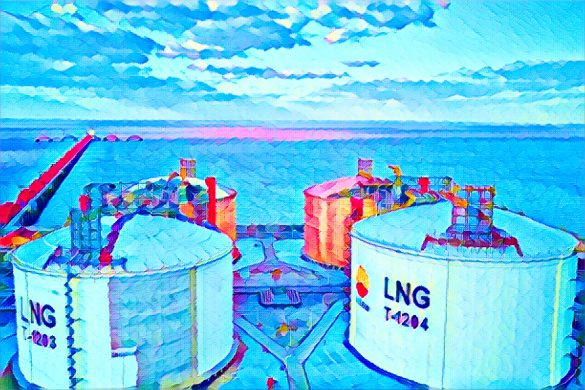Nigeria’s Liquefied Natural Gas (LNG) exports have taken a significant hit, dropping by 13% due to a persistent gas shortage. This decline underscores the ongoing challenges facing the nation’s energy sector, which is crucial for its economic stability and growth.
The Nigerian National Petroleum Corporation (NNPC) reported that LNG exports fell to 18.1 million metric tonnes in the first half of 2024, down from 20.8 million metric tonnes in the same period last year. The shortfall in gas supply has been attributed to a combination of factors, including aging infrastructure, pipeline vandalism, and underinvestment in the sector.
Aging infrastructure has been a longstanding issue for Nigeria’s energy industry. Many of the pipelines and processing facilities are decades old and in dire need of modernization. Frequent breakdowns and maintenance issues disrupt gas production and transportation, leading to inconsistent supply levels.
Pipeline vandalism is another significant challenge. Sabotage and theft have plagued Nigeria’s oil and gas industry for years, causing substantial financial losses and supply disruptions. Despite efforts to enhance security and deter criminal activities, the problem persists, severely impacting gas availability for LNG production.
Additionally, underinvestment in the gas sector has exacerbated these problems. Nigeria holds one of the world’s largest natural gas reserves, yet the sector has not received the necessary capital infusion to develop its full potential. Investment has often been hampered by regulatory uncertainties, policy inconsistencies, and bureaucratic hurdles.
The reduction in LNG exports has considerable economic implications for Nigeria. LNG is a major revenue source, and the decline affects the country’s foreign exchange earnings, fiscal health, and ability to finance public projects. This situation adds pressure to an economy already grappling with high inflation, unemployment, and sluggish growth.
Global market dynamics also play a role in Nigeria’s LNG export challenges. Increased competition from other LNG-producing nations, such as Qatar and Australia, has intensified the market environment. These countries have ramped up their production capacities and secured long-term contracts with major importers, making it harder for Nigeria to maintain its market share.
Furthermore, the global push for cleaner energy sources is reshaping the energy landscape. While natural gas is considered a cleaner alternative to coal and oil, the transition to renewable energy is accelerating. This shift could impact long-term demand for LNG, putting additional pressure on Nigeria to diversify its energy portfolio and explore sustainable energy options.
Despite these challenges, there are reasons for cautious optimism. The Nigerian government has expressed a renewed commitment to revitalize the gas sector. Initiatives such as the Decade of Gas plan aim to harness the country’s vast gas resources for economic development, job creation, and energy security.
The plan includes significant investments in gas infrastructure, regulatory reforms, and partnerships with private sector players. The government’s focus on improving the business environment and attracting foreign investment is crucial for the sector’s growth and sustainability.
Efforts to combat pipeline vandalism are also being intensified. The deployment of advanced surveillance technology, community engagement programs, and stronger law enforcement measures are part of a comprehensive strategy to protect critical energy infrastructure.
Moreover, Nigeria is exploring opportunities to expand its domestic gas market. Increasing local consumption of natural gas for power generation, industrial use, and residential applications can reduce dependency on exports and stabilize revenue streams.
As Nigeria navigates these complexities, the hope is that strategic investments and policy reforms will revitalize the LNG sector and bolster the nation’s energy security. The journey towards achieving these goals is challenging, but with determination and collaborative efforts, Nigeria can leverage its abundant gas resources for sustainable economic growth and development.
Source: businessday.ng


